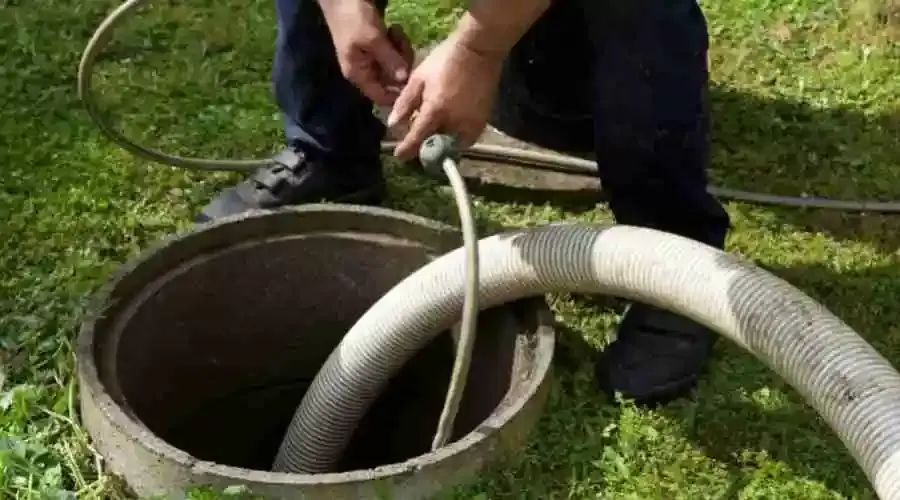Avoid putting these things in your septic tank at all costs.
Keep in mind that the solid waste is broken down by bacteria in your septic tank, so take that into consideration when deciding whether something should go down the drain or the toilet. When in doubt, keep this general guideline in mind: Anything that isn’t water, human waste, or toilet paper should not be put into your septic tank.
The following is a list of some of the most frequent objects found in homes that should not be disposed of in septic tanks:
- Cigarette butts
- Wet wipes for cleaning
- Diapers
- Feminine hygiene products
- bits of food
- Latex products
- Towels and tissues made of paper
How can I maintain the health of my septic system?
If you reside in a more remote part of the country, there’s a strong possibility that your house disposes of its wastewater via the use of a septic system. If you are the owner of a septic tank for the first time, it is possible that you are unaware of the fact that your septic system needs some maintenance in order to continue to function properly. The good news is that the upkeep of a septic system does not have to be difficult, costly, or nasty. If you give your septic system the basic care and maintenance it requires, you can assure that it will continue to function correctly for many years to come.
The following is a list of useful advice that will assist you in maintaining the health of your septic system and maximizing its effectiveness.
Conduct a Full Inspection of Your Septic System.
Your septic system’s health may be improved with routine inspections and maintenance performed on a consistent basis. Inspections may be helpful in identifying small problems such as water leaks, which might result in the septic tank filling up more rapidly. If you take care of little problems as soon as they arise, you will reduce the likelihood that they will escalate into major concerns in the future.
It is also essential that you get your septic tank drained out on a regular basis. The frequency with which the septic tank has to have its contents pumped out is dependent on a number of criteria, including the population of your home, the volume of wastewater produced, and the size of the septic tank. A reasonable rule of thumb is to have your septic tank pumped out every three to five years, but you should check with your local health department to be sure.
Make Efficient Use of Water
An excessive amount of water use is one of the common causes of a malfunctioning septic system. Perform leak checks on faucets and toilets, and if required, perform any necessary repairs. This will help reduce the amount of water flowing into the septic tank.
Another thing to keep in mind is to not drain your hot tub into the septic tank or drain field as large volumes of water can ‘drown’ your drain field. Also, the chlorine in the hot tub may kill the bacteria in your septic tank which can cause issues down the road.
Be Mindful with Your Landscaping
Because it will assist prevent erosion, the grass is an excellent choice for the cover of your drain field. Plants with a shallow root system can also be used near the drain field, but anything with a longer root system, especially trees, can cause root intrusion and structural damage to your septic tank.
Too much water in the drain field is a problem. Make sure that any extra water from sprinklers or irrigation systems runs away from the drain field.
Keep the Drain Field Clear
You should never park or drive over the drain field. Keep storage sheds, patios, carports, and any type of landscaping plastic away from this area as well. This will keep the soil in this area from being packed down which may result in broken pipes.
Keep Your Septic Tank Lid Easily Accessible
A riser is a great addition to your septic tank. It allows for inspections to be less expensive and less time-consuming. Also, when the time comes to have your septic tank emptied, a riser allows for less mess and disruption to your yard.
Watch What Goes Down the Drain
Minimize garbage disposal/garburator use to prevent the build-up of solids inside the septic tank. This build-up can quickly clog or choke the drain field.
Also, pouring grease down the drain is a big no-no. The grease can often form gunk along the drainage pipes. If too much grease goes down the drain, over time it can clog the drain field which may result in costly repairs.
Never flush anything down the toilet besides human waste and toilet paper.
Each septic tank holds bacteria necessary for breaking down the solids in the tank. Pouring chemicals down the drain and into the septic system may kill this bacteria, causing issues down the road. Using earth-friendly cleaners will help minimize the disruption to the bacteria in the septic tank.
FAQs Regarding Items That Should Not Be Placed in Septic Tanks
A lot of people have questions about what they can and can’t put down the drain of a toilet or a sink, and Elizabeth Drain Service is happy to answer all of those queries. The following is a list of the most frequently asked questions that we get regarding septic tanks:
Is it okay to flush flushable wipes down a septic system?
No. There is no such thing as a wipe that can be flushed down the toilet. It doesn’t matter whether your home is connected to a septic system or a municipal sewage system; you should never flush wet wipes down the toilet. This includes baby wipes, face wipes, and cleaning wipes. Because they are not biodegradable, they may cause your septic tank to fill up much more quickly than it normally would, which may lead to an issue.
Is the addition of chlorine permitted in septic tanks?
No. The bacteria that are necessary for the septic system to function normally may be eliminated with the use of chlorine or bleach-containing chlorine. Because of this, neither product containing chlorine should be put in a septic tank.
Is it a smart idea to add yeast to septic tanks?
Yes. It is possible to stimulate the development of “good” bacteria in a septic tank by adding dry active yeast (the same sort that is used to bake bread), which will also increase the tank’s ability to digest solid waste.
If you have a septic tank, can you put milk in it?
There is some evidence that septic tanks may benefit from the addition of a very small quantity of milk or buttermilk. When it comes to the breakdown of solid organic matter, the bacteria that are present in spoilt milk may help your septic tank function at a higher level of effectiveness.
What about dumping animal carcasses in sewage treatment facilities?
It is reasonable to believe that a putrefying animal corpse that is coated with germs must be beneficial to the bacterial population of a septic tank; nevertheless, this is not the case. The bacteria on the corpse are not native to the septic biome and have the potential to eradicate the beneficial microorganisms that are essential to the functioning of the septic tank.
Do septic tanks allow for the disposal of dog feces?
No. It is not recommended that you dump dog feces in a septic tank. Hair, grass, and rawhide are examples of things that a septic system has a difficult time breaking down, and dog excrement often includes these things.
Is it okay to use kitty litter in septic systems?
No. When cat excrement and litter are flushed down the toilet, the tank will fill up more quickly and will need to be emptied more often. This is true even if the litter is biodegradable.


